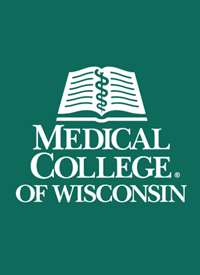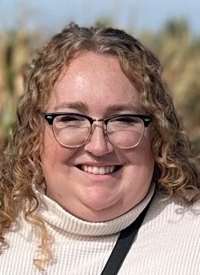Clinical training in MCW’s Pediatric Hematology/Oncology/Blood and Marrow Transplant Fellowship centers on a multidisciplinary approach to the care of patients with hematological, oncological, and immunological diseases in the MACC Fund Center for Cancer and Blood Disorders at Children's Wisconsin. Children's is an award-winning health care system dedicated solely to the health and well-being of children.
Multidisciplinary teams of physicians, nurses, advanced practice providers, and many other health care professionals specializing in pediatrics are available to meet the full range of patient care needs. The Pediatric Hematology/Oncology/Blood and Marrow Transplant services see over 4,000 patients in outpatient clinics and admit over 400 children per year.
During the three-year training program, time is distributed to ensure that fellows develop clinical expertise. Clinical time will be split between outpatient clinics, inpatient ward, procedures, and the corresponding service related conferences. Fellows will spend one half day per week in continuity clinic for the duration of their training.
Year 1
The focus of the first year of the fellowship is to develop the clinical skills and abilities to provide optimal patient care for children with blood disorders and cancer. The program provides approximately 11 months of clinical experience, both inpatient and outpatient, the first year.
During their clinical rotation the fellow will be on first call from 8 a.m.-5 p.m. and call will also be taken two weekends per month and one night per week on the assigned clinical service. Continuity Clinic will focus on oncology patients one half day per week throughout the first year. Each subspecialty has a variety of daily clinics to give the fellow full exposure to hematology, oncology, and blood and marrow transplant related diagnoses.
During the first year, the fellow will devote their efforts to the following rotations.
Children's Wisconsin Hematology and Blood Disorders website
The fellow will spend 12 weeks on the hematology service during the first year. At the end of the first year the fellow will have a diversity of experiences with children with hematologic disorders and develop the clinical skills needed to function as a clinician. The Hematology Program sees over 650 new patients annually.
The Hematology Inpatient Unit has more than 340 admission per year with 70 new patients admitted annually. There are multiple benign Hematology clinics each week staffed by Drs. Azul, Flood, Liberio, Punzalan, and Remiker.
The Children’s Wisconsin Comprehensive Sickle Cell Program takes care of over 400 children with sickle cell disease and takes care of majority of children living with sickle cell disease in the state. There are weekly comprehensive clinics in combination with nursing, social work, clinical navigator, psychology, neuropsychometry, genetic counseling, and research, as well as multiple hydroxyurea clinics each week staffed by Drs Azul, Brandow, Remiker, and APNP Hillary McCown.
The Children’s Wisconsin Comprehensive Thalassemia Program takes care of approximately 40 children living with thalassemia and is the only comprehensive program in the state. Comprehensive clinics occur four times each year, and include care from Hematology, Endocrinology, Nutrition, Genetic Counseling, Social Work, Clinical Navigator, Psychology, and Neuropsychometry. The thalassemia patients are managed by our APNPs Hillary McCown and Mary Laus, with comprehensive care by Dr. Remiker.
The Children’s Wisconsin Immunohematology Program works very closely with the Immune Dysregulation program, which includes Hematology, Immunology, Rheumatology, Gastroenterology, and Bone Marrow Transplant. The group provides consultations including evaluation and management of children with complex immune dysregulation disorders. A combination clinic occurs monthly with Hematology and Immunology and focuses on evaluation and advanced management of children with Evans Syndrome, ALPS, chronic immune thrombocytopenia, autoimmune hemolytic anemia, lymphoproliferative disorders, as well as other undiagnosed cytopenias. The Immunohematology program is directed by Dr. Remiker, with assistance from APNP Mary Laus.
Comprehensive Center for Bleeding Disorders (CCBD): We see pediatric and adult patients at Children’s Wisconsin on the fifth floor within the MACC Fund Center. Our Comprehensive Hemophilia Clinic on Monday mornings is staffed by Drs. Malec and Friedman; the VWD/New Patient Clinic on Tuesday afternoons is staffed by Dr. Flood; and our Thursday morning and afternoon clinics for new patients and patients with VWD, PFD, thrombophilia, thrombosis and rare bleeding disorders are staffed by Drs. Punzalan, Branchford and Friedman and our APNP Lisa Andekian. Through these clinics we provide expert care to patients with hemophilia, von Willebrand disease, rare coagulation disorders, thrombosis and other disorders related to bleeding and clotting. Our physicians are also actively engaged in clinical and basic science research.
Responsibilities include:
- Caring for both hospitalized and clinic patients with sickle cell disease, hemoglobinopathies, anemia, white cell disorders, abnormalities of hemostasis, hemophilia, disorders of platelet function and thrombosis plus a variety of other acute and chronic hematological disorders
- Reviewing peripheral blood smears, bone marrow slides, coagulation studies, and immunologic testing
- Attending service appropriate patient care conference and presenting patients seen with those respective problems
Children's Wisconsin Cancer Overview
During their first year, the fellow will spend 12 weeks on inpatient oncology service and 4 weeks on outpatient oncology rotation. The Oncology Program sees approximately 160 new patients annually.
Inpatient, the oncology unit consists of 21 beds and has over 890 admissions per year with 130 new patients admitted annually. We treat many of our patients on clinical trials to offer the most advanced therapies available. Outpatient, clinics are separated into solid tumor, leukemia, and neuro-oncology teams, with the fellow seeing patients from all three areas on their continuity clinic days. More than 150 newly-diagnosed oncology patients are seen each year and the program actively manages more than 600 patients. Patients are also seen regularly in the MACC Fund Center Day Hospital, where they receive chemotherapy, fluids, transfusions, and have sick visits. The fellow has the opportunity to rotate through the Day Hospital during their outpatient oncology month. There are multiple outpatient oncology specialty clinics through which the fellow will rotate:
- Cancer Predisposition clinic is for patients who have known cancer predisposition syndromes and includes our oncology, genetics and psychology teams.
- COMPASS clinic is compromised of a team of oncologists, geneticists and genetic counselors, molecular biologists and dermatologists and sees both consults and regular follow-ups. Patient’s tumor molecular information is analyzed and discuss at our monthly molecular tumor boards to make recommendations regarding targeted therapy.
- Multiple disease team-based comprehensive clinics, including leukemia/lymphoma and neuro-oncology. These clinics are multidisciplinary, and include services such as dental, PM&R, psychology, endocrinology, and neurosurgery.
- Next Steps is our survivorship program. Clinics are held regularly, and include physicians, advanced practice providers, nurse educators, psychologists, social workers, dietitians, teachers, fertility navigators, and survivorship community navigators.
- Vascular Anomalies clinic sees patients with many different types of vascular anomalies, and has a multidisciplinary team including oncology, dermatology, ophthalmology, orthopedics, otolaryngology, and gynecology.
Responsibilities include:
- Caring for patients with leukemia, lymphomas, CNS tumors, and other solid tumors in both an inpatient and outpatient setting.
- Performing bone marrow aspirations and biopsies and lumbar punctures and ventricular reservoir taps with administration of intrathecal chemotherapy.
- Reviewing peripheral blood, bone marrow aspirations and biopsies, samples of cerebrospinal fluid and flowcytometric results from patients with oncological disorders.
- Attending, participating, and presenting at multi-disciplinary conferences.
- Following pediatric patients with representative oncological disease for the duration of the fellowship in a continuity care clinic.
Children's Wisconsin Blood and Marrow Transplant website
The fellow will rotate in the blood and marrow transplant service for 10 weeks. During this rotation the fellow will develop an understanding of the indications for hematopoietic progenitor cell (HPC) transplantation, histocompatibility biology, and pre-transplant typing procedures.
Blood and Marrow Transplant Clinics are held daily. The BMT program performs 40 transplants and follows over 80 patients per year. Our experienced program focuses on translational research to provide a solid foundation for the most advanced care.
Responsibilities include:
- Participating in the care of patients receiving autologous and allogeneic donor transplants
- Identifying and managing complications of blood and marrow transplantation including graft failure, graft versus host disease, organ dysfunction, and disease relapse post HPC transplantation
- Working with the multidisciplinary team to learn and appreciate the medical and psychosocial issues unique to HPC transplantation
- Attending and presenting at weekly conferences where potential new patients and the status of current HPC transplant patients are discussed
Transfusion Medicine/Hematopathology
The fellow will do a 2-week rotation in transfusion medicine and 2 weeks in hematopathology. This rotation offers a laboratory approach to diagnosis of hematologic disorders, as well as education in the structure and function of the routine hematology laboratory.
During this rotation the fellow will:
- Gain practical expertise in diverse topics such as the processing and storage characteristics of blood and blood components, typing and crossmatching for transfusion, infectious risks of blood products, complications of transfusion, plasmapheresis indications and methods, HLA typing, and hematopoietic stem cell processing
- Develop a better understanding of laboratory techniques/technologies necessary for the care of pediatric patients with hematological and oncological diseases
- Learn to function as effective laboratory consultant to clinical colleagues, both in the interpretation of pathologic material, as well as by providing input into the proper utilization and interpretation of laboratory tests for the patient work-up
- There will be no call responsibility during this rotation
Electives
The fellow will have one month during the first year on an elective rotation. Popular electives include Palliative Care, Radiation Oncology, Radiology, Procedures, Outpatient BMT clinic, Neuro Onc, Outpatient Hematology clinics and many more! These four weeks are designed around the fellow’s career goals.
The fellow will take two weeks during year one to identify a research mentor and project with the guidance of the Scholarship Oversight Committee.
Years 2 and 3
- The second and third years of the fellowship training provide ample protected time to pursue research endeavors while fostering improved clinical, administrative, and teaching skills.
- There are a required 4-8 weeks of clinical time that is individualized based on the fellow’s career interests
- Clinical call will be taken one weekend per month on either the hematology or oncology clinical service.
- The fellow's oncology continuity clinic will continue into years two and three with a half-day continuity clinic every other week alternating weeks with a half-day hematology continuity clinic.
- Clinical responsibilities in the second and third years will emphasize supervised decision-making, a more senior role in communication with families and patients, and teaching medical students and residents.





















